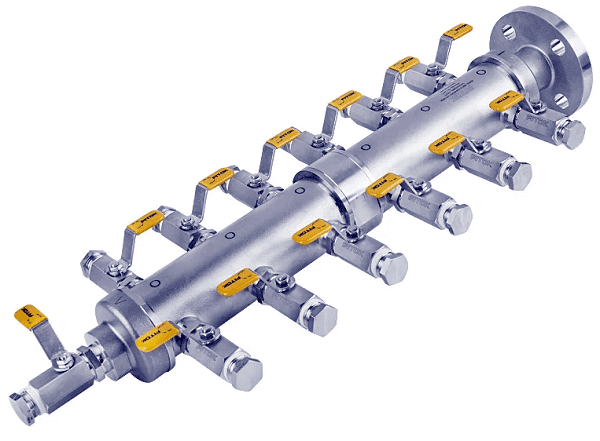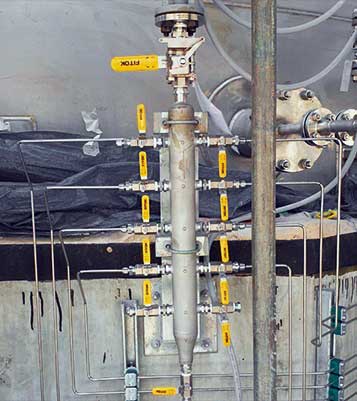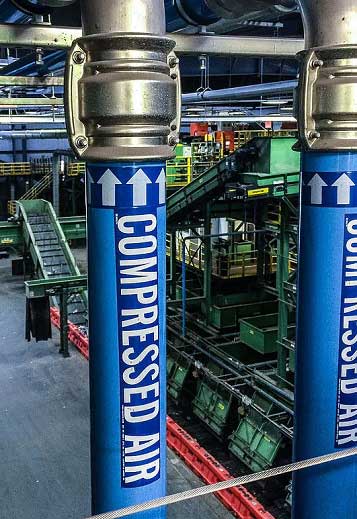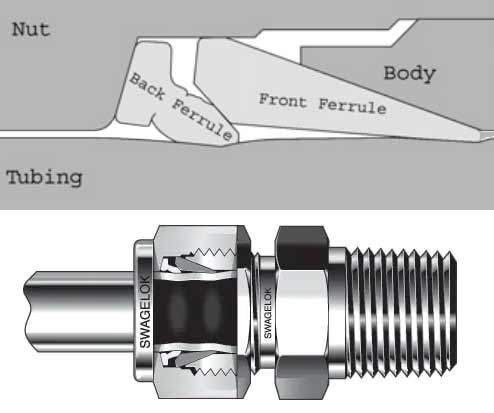Instrument Air
Instrument air is a very important component in compressed air systems. The most common application for instrument air is in the oil and gas industry, and plays a crucial role in achieving safety, efficiency and reliability in various operations.

Image Property solutecmandiri.com
Instrument air is compressed air that has been treated and conditioned for use in instruments and process control equipment. Treatment usually consists of removing moisture, oil and other contaminants that can interfere with instrument operation.
In practice, instrument air is used to control valves, drive pneumatic tools, drive air motors, purge, and for a variety of other functions in industrial applications.
The critical property of instrument air is its high purity, which is essential for maintaining the accuracy and reliability of pneumatic controls and instrumentation.
It is critical to maintain the quality of instrument air because inferior or contaminated air can cause malfunctions in sensitive equipment, leading to potential safety issues and negatively impacting the overall efficiency of an operation.
Instrument air specifications and standards are often set by industry bodies and can vary based on the specific application and industry.
Difference Between Instrument Air and Industrial Compressed Air
Although both instrument air and ordinary industrial compressed air are essential components in many industries, they serve different purposes and have different properties.
Instrument air is mainly used to drive control valves and pneumatic instruments. This form of air is carefully treated and conditioned to be free of contaminants such as moisture, dust and oil particles.
Often instrument air has a pressure of 1 bar (15 psig). The high purity of instrument air is essential for accurate and reliable operation of sensitive instruments and control systems.

Industrial compressed air also called factory air or process air is more commonly used in various industrial processes.
This means that its treatment is less stringent than that of instrument air. Compressed air is used to power pneumatic tools, cleaning equipment and other more general applications in an industrial environment.
 Image..
Blog.Exair.Com
Image..
Blog.Exair.Com Thus, the main difference between the two lies in their degree of purity and the applications for which they are used. Instrument air must be cleaner and more controlled because of its use in sensitive equipment, while industrial compressed air can contain more contaminants and can be used for broader functions.
Oil and gas industry
The most common application for instrument air is in the oil and gas industry. It plays a crucial role in achieving safety, efficiency and reliability in various operations. Below are some applications of instrument air in the oil and gas industry..
Control valve operation: the precise operation of control valves is crucial in the oil and gas industry. Instrument air, with its high purity, is used to operate these valves to control flow rate, pressure and other parameters in pipeline systems.
Operational safety: the instrument's air is an inert gas, reducing the risk of explosion or fire in potentially hazardous environments such as oil rigs. This property makes it suitable for use in pressurizing equipment enclosures and providing a safe atmosphere.
Sandblasting and surface preparation: in the maintenance of ship and oil platform structures, instrument air can be used in sandblasting processes. The high-pressure, clean and dry air flow is ideal for removing rust and preparing surfaces for repainting. With its inherent safety properties, instrument air reduces the risk of explosions and fire in high-risk environments.
Gas flaring and venting: instrumental air is used in oil extraction and processing for gas flaring. Flaring is a method used to safely burn combustible gas released during unplanned overpressurization of plant equipment by pressure relief valves.
Chemical industry
In chemical plants, instrument air is often used for pneumatic control. It operates pneumatic control
valves and dampers that control fluid flow in pipelines and process systems. This helps maintain
precise control of plant processes.
Power Generation
Instrumented air is vital in power plants, especially when operating turbines. The clean, dry air
helps cool certain components and also operates various control mechanisms to achieve optimal
power output.
Pharmaceuticals
In the pharmaceutical industry, instrument air acts as a clean and safe energy source for various
process control systems. Given the demanding environment of pharmaceutical production, a reliable
source of high-purity air such as instrument air is critical.
References..
blog.exair.com | www.airpressa.com | www.12eleven.com
You have the sun, you have the moon, you have the air that you breathe - and you have the Rolling Stones! Keith Richards
Related Post(s)

Compression fittings are one of the most common and versatile methods of joining small diameter metal or hard plastic tubing...